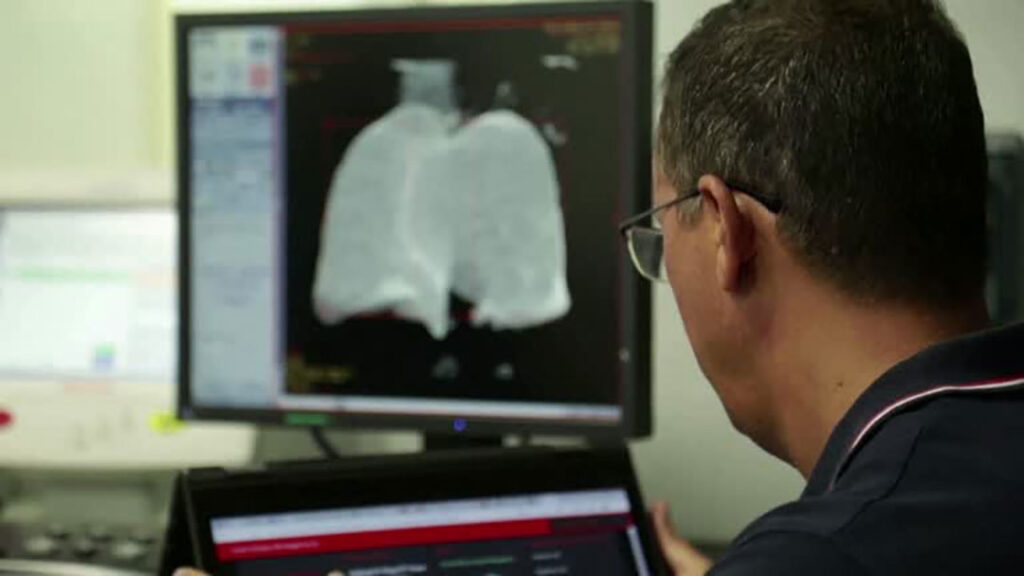ADF STAFF
As Tunisia confronts a second wave of COVID-19, doctors across the country have welcomed a new ally in their fight — an artificial intelligence (AI) program that can spot potential coronavirus infections in X-rays and CT scans.
The AI offers a cheaper, faster diagnosis than traditional lab tests. The widely used polymerase chain reaction (PCR) tests require sterile environments and expensive reagents and can take days to produce results. The AI program generates results much faster and in mass, said Professor Mustapha Hamdi, who developed the software earlier this year at Tunisia’s National Institute of Science and Technology with funding from Germany’s GIZ development agency. The Tunisian Health Ministry has approved the technology.
“The PCR method has limitations in terms of specimen collection, time required for the analysis and availability,” Hamdi told ADF. “This makes diagnosis of COVID-19 from lung X-rays or CT scans of patients a good candidate for AI, which could help accelerate the analysis of these scans supporting specialists.”
Tunisia reopened its borders in late July in an effort to revive tourism. A resurgence of COVID-19 cases followed. As of mid-November, the country had reported more than 88,700 cases and more than 2,800 deaths.
With COVID-19 cases rising around the world, the high demand for the chemical reagents used in laboratory tests can drive up prices or delay results.
Tunisia’s approach overcomes that problem, according to Hamdi. It is also designed to conduct mass testing rapidly, something reagent-based testing struggles to do, he said.
The AI was developed using thousands of chest X-rays and CT scans that doctors have identified as containing the “ground glass” lesions that indicate the kind of lung inflammation or pneumonia that accompany COVID-19. Normally, lung tissue appears dark on an X-ray.
By using AI to search for the fingerprint of COVID-19 inside a patient’s lung, medical staff can determine whether the person has the virus, according to doctoral student Omar Khouaga, who worked on the software. The developers say the technology is 90% accurate.
“For more accuracy, we can ask about conventional COVID-19 symptoms such as tiredness, fever, etc.,” Hamdi said.
The system still needs fine tuning to address patients who may contract COVID-19 without developing symptoms, according to Hamdi.
The new technology has proven especially helpful for medical professionals in rural parts of the country, where hospitals may have X-rays and CT scanners but few radiologists to interpret the images.
In those cases, the internet-based AI can filter the images for key COVID-19 indicators before radiologists in the capital review them to confirm the diagnosis, Hamdi said.
“This helps perform a large number of diagnosis in very short time,” he added.
Hamdi and his team have begun training their AI to recognize other health problems, including lung cancer, through X-rays and CT images. They want to collaborate with medical professionals in other countries to expand the use of AI.
“Also, we are interested in giving free access to refugees and underresourced communities,” Hamdi said.

